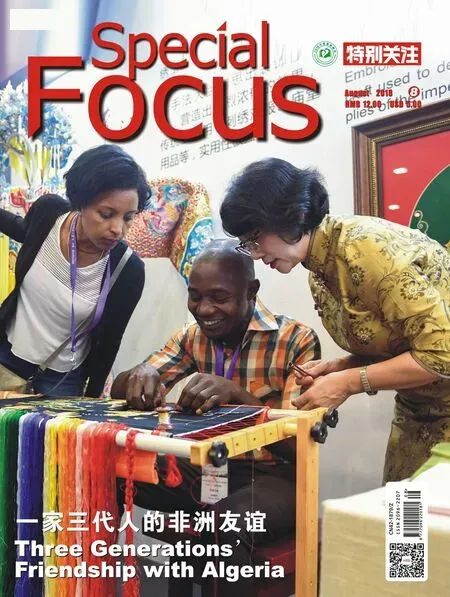cí
By Zou Xinsheng
“Law is reason free from emotion.” Aristotle’s immortal remarks bestowed a compass of rationality upon the world, which guides every individual on the journey through life. However, as we encounter frustrations and failures, we are inclined to be aroused to lose our rational centering. Clearly,benevolence and affection are healing elixirs for the injured and the down trodden, the essence of which is reflected in the Chinese character 慈 (cí).
Saint Teresa of Calcutta once said, “Not all of us can do great things, but we can do small things with great love.” To fully appreciate the infinite power of love, we should get down to the fundamentals of the Chinese character 慈. As elucidated in theShuowen Jiezi (Origin of Chinese Characters), the first Chinese comprehensive dictionary in history, the earliest and most prevalent meaning of慈 is愛(ài), meaning “benevolence and affection,” from which the brilliance of Chinese culture radiates.
Besides turning to the dictionary to unlock the mysteries of a particular character, people can simply deduce the root of the character慈 from its formation that慈 combines two parts: the upper part is 茲 (zī), meaning“blossoming and flourishing”; the lower part is 心 (xīn), meaning“heart.” The integration of the two parts amplifies to help others evolve themselves in generosity and kindness, thus echoing with its definition in theShuowen Jiezi.
Profound Chinese culture is an avenue for the solidification of our national virtues, like benevolence,modesty and filial piety, etc.Endowed with these homegrown attributes, the character 慈 has a multiplicity of connotations.

Legend has it that Mencius’mother relocated and resettled three times, in order to seek out sanctuary for his education—the epitome of a mother’s love.Another concrete example of doting mother goes to a famous poem entitled “Hymn of the Traveler” (游 子 吟 yóu zi yín), in which “誰言寸草心,報得三春暉?”(shuí yán cùn cùn xin, bào dé sān chūn huī. Who could claim that green grass might somehow repay the sun for its warmt h?) A portion of a kind mother is condensed into a typical Chinese character called慈母 (címǔ, loving/fond mother),where 慈 means kind and amiable.
Chinese philosophy is steeped in modesty and courtesy, two national virtues. In humble expression, 家 慈 (jiācí) refers to“my mother” while its counterpart家嚴 (jiāyán) “my father.”
Another sense of 慈 is 盡孝道(jìn xiàodào, practice the doctrine of filial piety). In traditional Chinese culture, filial piety is believed to be the very foundation of all virtues, “百善孝為先 ” (bǎi shàn xiào wéi xiān). It has been known by every man, woman and child in every household across China for thousands of years. To a great extent, a man’s integrity is largely determined by the expression of his filial piety.
In any nation, human kindness resonates with benevolence when it is devoted to the sublimation of her national character.Sometimes life can be a struggle;however, if somehow the virtue of human kindness can be instilled into people’s heart, they will go as far as their talents will take them.

